Adugna Woyessa
Dr. Adugna Woyessa is currently working for Ethiopian Public Health Institute, which is the research arm of the Ministry of Health of Ethiopia, as Research Director of diseases and epidemiologist. Dr. Adugna focuses on malaria epidemiology with an emphasis on climate. His postgraduate study addressed on ways to fill the knowledge gap between malaria in the highlands and the development of malaria transmission measurement tools in low settings. Dr Adugna has also been engaged in health and climate issues such as human resource capacity building, evidence generation and research synthesis. He is currently, involved in research aimed at assessing impacts of climate variability/change in Ethiopia supported by WHO. Since 2008, he has been working on improving the use of climate information for surveillance and control of malaria in Ethiopia.
Alex de Sherbinin

Associate Director for Science Applications
Center for International Earth Science Information Network (CIESIN)
Dr. Alex de Sherbinin is the Associate Director for Science Applications at the Center for International Earth Science Information Network (CIESIN), an environmental data and analysis center within the Earth Institute at Columbia University. He also serves as Deputy Manager of the NASA Socioeconomic Data and Applications Center (SEDAC), Chair of the ICSU CODATA Global Roads Data Development Task Group, a member of the ICSU World Data System scientific committee, and coordinator of the Population-Environment Research Network (PERN), a network of 2,200 researchers from around the world. Dr. de Sherbinin is a geographer who has published in leading journals on the human aspects of environmental change at local, national and global scales. Prior to CIESIN he served as a Population-Environment Fellow at the International Union for Conservation of Nature (IUCN) and a population geographer at the Population Reference Bureau (PRB).
Allison Lieber
Allie Lieber is the grants program manager on the Google Earth Outreach team. She has been on the team for almost a year and has helped many nonprofits use maps as a platform to share their story with the world. Before Allie joined Google Earth Outreach, she was on the AdWords team, helping small and medium sized business optimize their online advertising.
Ana E. Bucher
Dr. Ana Bucher is a climate change adaptation specialist within the Climate Change Group of the World Bank. She leads several initiatives regarding mainstreaming of adaptation to climate change, climate risk screening, and climate smart planning. Her work focuses on understanding the impacts of climate change and adaptation measures particularly on agriculture and natural resource management (NRM), as well as mainstreaming climate change within cross-cutting initiatives such as green growth development. She supports activities thatliaise scientific and policy communities on development of climate services, climate risk management, and climate smart development planning. She is responsible for the development of the WB Climate Change Knowledge Portal, and the recently launched multi-partner Climate Smart Planning Platform. Dr. Bucher has more than ten years of experience in the research, development, and management of international programmatic activities and research projects related to climate change, agriculture, ecosystem assessment, and long-term environmental sustainability in Latin America, East and Central Asia, Europe, and Africa. She holds a Ph.D. in Soil Science from the Pennsylvania State University and a B.Sc. in Biological Chemistry from the University of Cordoba, Argentina.
Ángel Muñoz
Dr. Ángel Muñoz is a climate scientist at NOAA/GFDL, Princeton University, where he does research on climate extreme events, both their related physical mechanisms and impacts. He holds a Ph.D. in Earth and Environmental Sciences from Columbia University’s Department of Earth and Environmental Sciences (DEES), where his work was conducted at the International Research Institute for Climate and Society (IRI). Before arriving at the IRI in 2011, he was associate professor in the Department of Physics of Universidad del Zulia, and acted as founder, deputy director and then coordinator of the Geosciences Area at the Center for Scientific Modeling (CMC), in Venezuela. At the CMC he helped create the Latin American Observatory (www.ole2.org), a regional partnership aimed at improving regional capacities and networking to provide a wide spectrum of climate services for the Latin American countries. The Observatory has offered him the opportunity to work directly with decision-makers on different projects for the Interamerican Development Bank; the United Nations; the World Bank; Central American Regional Committee for Hydrological Resources (CRRH); Comunidad Andina de Naciones; the Environmental Ministry of Ecuador; and the national weather services of Ecuador, Peru, Colombia, Bolivia, Chile, Paraguay, Panama and Venezuela.
Bernadette Ramirez
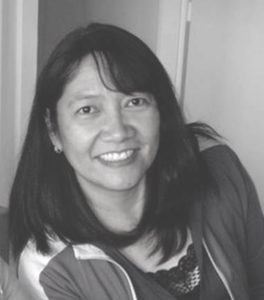
Scientist
Research unit – Vectors, Environment and Society at Tropical Diseases (TDR) at the World Health Organization
Dr. Bernadette Ramirez is part of the research unit called Vectors, Environment and Society at the Special Programme for Research & Training in Tropical Diseases (TDR) at the World Health Organization in Geneva, Switzerland. She currently manages and coordinates a portfolio of research projects that looks at population health vulnerabilities to vector-borne diseases with a goal of increasing community resilience under climate change conditions in Africa. She also coordinates a new research initiative on Health and Environment in Southeast Asia and the Western Pacific region. Bernadette has a PhD in Biological Science (Molecular Immunology) from the University of Santo Tomas (Manila, Philippines) and did her PhD Dissertation Research at Brown University as a Fulbright-Hays scholar.
Anna Stewart

Professor – Department of Medicine Director of the Latin America Research Program of the Center for Global Health Translational Science at SUNY Upstate Medical University
Dr. Anna Stewart is an Assistant Professor in the Department of Medicine and the Director of the Latin America Research Program of the Center for Global Health and Translational Science at SUNY Upstate Medical University. Her work is focused on developing a long-term research and training collaboration to study emerging infectious disease pathogens, vectors, social, and climate drivers in Ecuador and other countries in Latin America and the Caribbean. Over the last 10 years she has conducted operational research on the climate and social drivers of dengue fever transmission and other infectious disease. Ongoing projects are focused on development of a climate-arbovirus surveillance platform in Machala, Ecuador, testing of novel mosquito control technologies, and the effects of climate on dengue fever and zika transmission. Dr. Stewart received a concurrent PhD in ecology from the SUNY College of Environmental Science and Forestry and a Masters in Public Administration from the Maxwell School of Citizenship and Public Affairs at Syracuse University.
Bradfield Lyon
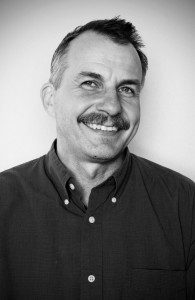
Adjunct Research Scientist Climate Analysis, Drought (IRI) & Associate Research Professor, Climate Change Institute (The University of Maine)
Dr. Bradfield Lyon is a climate scientist currently working as an Associate Research Professor at the University of Maine, jointly appointed by the School of Earth and Climate Sciences and the Climate Change Institute. Bradfield is also an Adjunct Climate Research Scientist at the IRI, Columbia University, where he has worked from 1999-2015. My research utilizes a wide range of climate observations and climate model output to analyze observed variations and extremes in the earth’s climate system on timescales ranging from sub-seasonal to multi-decadal. Dr. Lyon is particularly interested in investigating the causal mechanisms, regional manifestations, prediction, and impacts of drought and heat waves. In addition, he has undertaken diagnostic analyses of both regional and large-scale changes in the future climate based on coupled climate model projections. He is also interested in quantifying the impacts of climate variations and climate change in various sectors of society, including energy, agriculture, water resources and health.
Bruce A. Wilcox
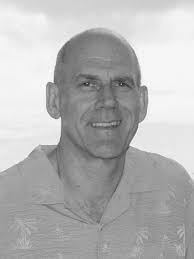
Director of Integrative Research and Education Programme
Global Health Asia Office Faculty of Public Health Mahidol University – Bangkok, Thailand
Dr. Bruce A. Wilcox is Director of Integrative Research and Education Programme, Global Health Asia Office, Faculty of Public Health, Mahidol University, Bangkok, Thailand. He received his undergraduate and graduate education from University of California at San Diego (BA, biology; PhD population biology) and Yale University (MS, ecology and evolutionary biology). A founder of the field of conservation biology, the journal Conservation Biology, he also was the founding editor of EcoHealth and first Chief Executive of the International Association for Ecology and Health. Early in his career he taught conservation biology and environmental policy, and was Associate Professor of Human Biology, Stanford University. He subsequently transitioned to the health sciences, and held the position of Professor of Ecology and Health at the University of Hawaii where he taught environmental health, disease ecology and global health. His current research focus is integrative research and its applications in environmental health, tropical disease research, and global health. He is a frequent consultant and advisor to international agencies including the World Health Organization on ecological and complex systems applications to environmental health challenges, particularly tropical disease prevention and control. He has authored or co-authored 100+ articles in peer reviewed journals and numerous technical reports and publications.
Carlos Pérez García-Pando
Dr. Carlos Pérez García-Pando is an Associate Research Scientist at Columbia University and NASA Goddard Institute for Space Studies. His research interests range from understanding the physical and chemical processes controlling atmospheric aerosols to evaluating their effects upon climate, ocean biogeochemistry, air quality and health. To achieve this, he has developed a hierarchy of models ranging from descriptions of the aerosol life cycle in climate and weather models to statistical models of infectious disease. He played a seminal role for the establishment and successful operation of the WMO Sand and Dust Storm Warning Advisory and Assessment System (SDS-WAS), whose mission is to enhance the ability of countries to deliver timely and quality dust storm forecasts, observations, information and knowledge to users through an international partnership of research and operational. In recent years, he has been involved in a cross-disciplinary research effort to unravel the links between dust aerosols, climate and meningitis epidemics in Africa. He co-developed a model combining climate and dust models with epidemiological and demographic data to forecast the risk of epidemics.
Chris Hewitt
Dr. Chris Hewitt has 25 years experience in the UK’s National Met. Service designing, developing and implementing climate research and climate services. This includes 6 years leading on the development and delivery of national and international climate services, including developing and writing the Global Framework for Climate Services (GFCS) implementation plan, guidelines for National and Regional Frameworks for Climate Services, and the GFCS Project Compendium and monitoring and evaluation framework. He is currently the chair of the Task Force to monitor and evaluate the GFCS, and chair of the WMO Commission for Climatology Expert Team on User Interfaces for Climate Services. He has an MSc and PhD in meteorology, atmospheric sciences and climate sciences. His career has had a focus on worldwide collaboration and partnerships with a wide-range of people.
Daniel Buss
Dr. Daniel Buss is the advisor of the Pan American Health Organization/World Health Organization for the region of the Americas on the three Rio Conventions – Climate Change (UNFCCC), Biological Diversity (UN CBD) and Combat Desertification (UNCCD) – and on the implementation of the Sustainable Development Goals, the 2030 Agenda. With a background on Ecology (BSc and MSc) and Public Health (DSc), and natural from Brazil, he represented his country’s Ministry of Health in several international meetings, with topics covering the SDGs, climate and health, environmental indicators and the connections between health and the environment. He was one of the leading authors of the recent book (2015) Connecting global priorities: Biodiversity and human health – a state of knowledge review, from the WHO and CBD. Daniel has joined PAHO as staff in 2016.
David Nabarro
Since April 2012 Dr. David Nabarro is the Coordinator of the Scale Up Nutrition Movement.
On August 12th 2014 he was appointed UN system Senior Coordinator for the response to Ebola Virus Disease (reporting to the UN Secretary-General).
He has more than thirty years’ experience of public health, nutrition and development work at country, regional and global levels, and has held positions in non-governmental organizations, universities, national governments as well as the United Nations.
David’s career in public health includes working as the Special Representative on Food Security and Nutrition for the United Nations, an Executive Director at the WHO, and as Director of Human Development and Chief Health Adviser at the UK Department for International Development.
Delia Grace
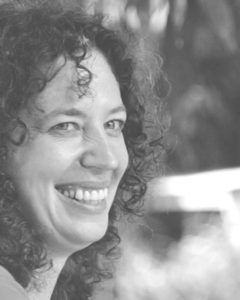
Program Manager Food Safety Zoonoses – International Livestock Research Institute in Kenya and CGIAR
Dr. Delia Grace is an epidemiologist and veterinarian with 20 years experience in developing countries. She is a graduate from several leading universities including the National University of Ireland, Edinburg University, the Free University Berlin and Cornell University. She leads research on zoonoses and food-borne disease at the International Livestock Research Institute in Kenya and the CGIAR Research Program on Agriculture for Human Nutrition and Health. Her main research focus is food safety in the domestic markets of developing countries. Research interests include emerging diseases, participatory epidemiology, gender and animal welfare. Her career has spanned the private sector, field-level community development and aid management, as well as research. She has lived and worked in Asia, west and east Africa and authored or co- authored more than 100 peer-reviewed publications and book chapters as well as training courses, briefs, films, articles and blog posts.
Diarmid Campbell-Lendrum
Dr. Diarmid Campbell-Lendrum leads the climate change and health team within the Department of Public Health, Environmental and Social Determinants of Health at WHO Headquarters. He has played key roles in the development of the first quantitative estimates of the overall health impacts of climate change, the 2008 World Health Assembly Resolution, and the first global conference on health and climate. He also leads the implementation of the WHO workplan on climate change, including a series of projects to pilot health adaptation in vulnerable countries. Diarmid is author of multiple journal papers, reports, and book chapters on the ecology and control of infectious disease, and on the health implications of global environmental change. He is a lead author of the recent Intergovernmental Panel on Climate Change (IPCC) Special Report on Extreme Events, and of the health chapter of the 5th Assessment report of the IPCC.
Gilma Mantilla
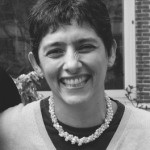
Adjunct Research Scientist – International Research Institute for Climate and Society
ProfessorPontificia Universidad Javeriana
Dr. Gilma Mantilla is a medical doctor and epidemiologist by training with over 25 years of public health experience on managing health systems development; designing and implementing public health policy and health promotion and disease control programs at international, national and local levels.
In the last 10 years with extensive engagement in policy processes re the development of effective demand for climate information including the implementation of innovative tools and protocols for creation, integration and dissemination of knowledge and information related with climate and public health. She also contributes to applied research to produce risk profiles of selected climate-sensitive diseases (malaria, dengue) by country and region and development of partnerships to assess and verify climate and health information. She was the Team leader of the First National Adaptation Plan on Climate Change and Human Health in Colombia.
Education and training have been key components of Gilma’s work; she has organized training courses, developed curriculum and trained international public health staff in public health management, public health policy , field epidemiology and climate and public health.
Jeff Shaman
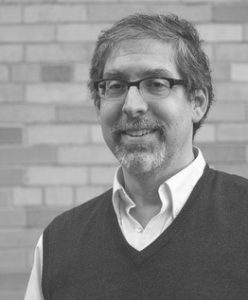
Associate Professor
Environmental Health Sciences
The International Research Institute/Earth Institute
Dr. Jeffrey Shaman, focuses on climate, atmospheric science and hydrology, as well as biology, and studies the environmental determinants of infectious disease transmission. In particular, Dr. Shaman investigates how hydrologic variability affects mosquito ecology and mosquito-borne disease transmission, and how atmospheric conditions impact the survival, transmission and seasonality of pathogens. More broadly he is interested in the effects of meteorology on human health and is currently working toward developing systems to forecast infectious disease outbreaks at a range of time scales. In addition, Dr. Shaman is studying a number of climate phenomena, including Rossby wave dynamics, atmospheric jet waveguides, the coupled South Asian monsoon-ENSO system, extratropical precipitation, and tropical cyclogenesis.
John McDermott
Dr. John McDermott joined IFPRI in 2011 to lead the CGIAR Research Program on Agriculture for Nutrition and Health (A4NH). Previously he was deputy director general and director of research at the International Livestock Research Institute (ILRI) in Nairobi from 2003-2011. McDermott has lived and worked in Africa for 25 years.
As a researcher, McDermott’s career has focused on public health, animal health and livestock research. He has led projects on zoonotic and emerging diseases in Asia and Africa. McDermott has a strong background in quantitative methods (modeling, study design, statistics). He has earned both a PhD in Epidemiology and Doctor of Veterinary Medicine from the University of Guelph in addition to a Master’s Degree from the University of California – Davis. McDermott has authored or co-authored 200 peer-reviewed publications, book chapters and conference papers and has advised over 30 post-graduate students, including 20 PhD graduates. He was a visiting lecturer at the University of Nairobi and a professor at the University of Guelph. He has also served as an advisor to FAO, WHO, OIE, and served as a non-executive director of the Global Alliance for Livestock Vaccines and Medicine.
Joy Shumake-Guillemot
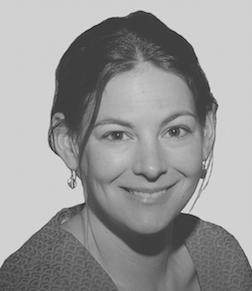
Officer- in-Charge World Meteorological Organization/World Health Organization Joint Office for Climate and Health
Dr. Joy Shumake-Guillemot leads the WHO/WMO joint office for Climate and Health in Geneva Switzerland. She is an environmental health scientist who has worked with WHO, WMO, UNICEF and others to develop public health policy and programming for climate adaptation and risk management. She has extensive field experience in Africa, Asia, and Latin America supporting public health and humanitarian assistance programmes. Her current work focuses on supporting WMO and WHO to accelerate the availability, access and use of climate and weather information for public health policy and practice. Joy was the lead author of the WHO Operational Framework for Climate Resilient Health Systems, the health strategy for the Global Framework for Climate Services, and has contributed to numerous research, policy, and technical publications. Joy is a Doctor of Public Health in Environmental Health Sciences from Johns Hopkins University in the USA.
Juli Trtranj
Ms. Trtanj is responsible for developing and coordinating NOAA’s health portfolio with other federal, state, local and international Agencies, academic and private sector partners. She has worked at the intersection of climate, oceans and health since 1997, designing and directing multidisciplinary and multi-partner programs—the Oceans and Human Health Initiative (OHHI) and the Climate Variability and Human Health Program. The OHHI main goals were to lead the development and delivery of health early warning systems to reduce ocean-related health risks, and to enhance the health benefits from ocean- derived food and natural products. The Climate Variability and Health Program focused on developing capacity to use climate information to reduce health risks in Africa, Asia, and Latin America. She also developed and managed a joint climate and health research program with the National Science Foundation (NSF), the Environmental Protection Agency (EPA), and EPRI (formerly the Electric Power Research Institute).
Ms. Trtanj co-chairs the US Global Change Research Program, Climate Change and Human Health Group (CCHHG) and leads the development of the Metadata Access Tool for Climate and Health (MATCH) recently released as part of President Obama’s Open Data Initiative. She also co-chairs the United States/European Union Task Force on Biotechnology, Marine Genomics Working Group; is the Water-Related Illness Component Lead for the Group on Earth Observations (GEO), and Co-chairs the recently established Ecological Forecasting Committee of the American Meteorological Society. She has contributed to, reviewed, and edited, health- related sections of the past three IPCC reports and authored numerous papers. She earned her Master’s in Environmental Management from Yale School of Forestry and Environmental Studies, and her Bachelors from the University of California Santa Barbara, and has an extensive background in foreign commodities trading, portfolio management, and venture capital.
Kacey Ernst
Dr. Kacey Ernst is an infectious disease epidemiologist and Associate Professor at the University of Arizona, College of Public Health. Her work focuses on the dynamics of vector-borne diseases; primarily Aedes-borne viruses (dengue, chikungunya, and Zika viruses) and malaria. Her work focuses on both ecological aspects of pathogen transmission and applied questions regarding best practices for interventions to control mosquito-borne diseases. One of her primary projects focuses on developing an understanding of the influences of inter-annual weather patterns on the bionomics of Ae. aegypti and resulting dengue virus transmission risk in the U.S. – Mexico border region. This research has led to a collaborative initiative to build a community-based surveillance mobile app for mosquito activity and dengue-like, chikungunya-like, and Zika-like illnesses in the region which will be the focus of her discussion at the workshop.
Keith Hansen
Mr. Keith Hansen is the Vice President for Human Development at the World Bank Group, overseeing the Global Practices for education; health, nutrition, and population; and social protection and labor.
Prior to this appointment, Mr. Hansen was one of the co-vice presidents for all of the Global Practices responsible for the setup and oversight of the Bank Group’s new operating model, which aimed at bringing together the best expertise from across the institution and from partners to help tackle countries’ most complex development challenges. In that role, he was also responsible for the oversight of the Cross-Cutting Solution Areas, which focus the WBG’s efforts and resources on achieving ambitious targets in key priority areas such as gender and jobs.
Mr. Hansen also served as acting vice president for the World Bank’s Human Development Network. He was the human development director for Latin America and the Caribbean, responsible for the Bank’s activities in education; health, nutrition, and population; and social safety nets in the region. Previously, in his role as head of the AIDS Campaign Team for Africa, Mr. Hansen spearheaded the Bank’s renewed approach to the epidemic.
He holds a master of public affairs degree from the Woodrow Wilson School at Princeton University, a law degree from Stanford University, and a bachelor’s degree in political science from Yale University.
Kim Knowlton
Dr. Kim Knowlton focuses on the public-health impacts of climate change and advocates for strategies to prepare for—and prevent—these impacts, especially in vulnerable communities. As a result of her research into the links between climate change and health, NRDC has partnered with a number of city and state governments to strengthen health preparedness in their climate adaptation plans. She has also studied heat- and ozone-related mortality and illness as well as the connections among climate change, infectious illnesses, flooding, aeroallergens, and respiratory ailments such as allergies and asthma. Knowlton was among the researchers who participated in the Third U.S. National Climate Assessment Report and the New York City Panel on Climate Change. She holds a bachelor’s degree from Cornell University, a master’s in environmental and occupational health sciences from Hunter College, and a doctorate in public health from Columbia University, where she now serves as an assistant clinical professor in the Department of Environmental Health Sciences.
Kristie L. Ebi
Dr. Kristie L. Ebi is a Professor in the Departments of Global Health and of Environmental and Occupational Health Sciences, University of Washington. She has been conducting research and practice on the health risks of climate variability and change for twenty years. She focuses on understanding sources of vulnerability, estimating current and future health risks of climate change, and designing adaptation policies and measures to reduce the risks of climate change in multi-stressor environments in Central America, Europe, Africa, Asia, and the Pacific. She also is co-chair with Tom Kram (PBL, The Netherlands) of the International Committee On New Integrated Climate change assessment Scenarios (ICONICS), facilitating development of new climate change scenarios.
Linda P. Fried
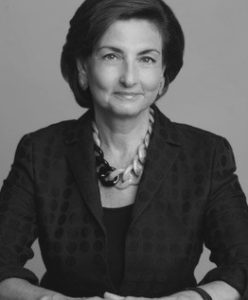
Dean of the Mailman School of Public Health and DeLamar Professor of Public Health Practice
Senior Vice President, Columbia University Medical Center
Dr. Linda P. Fried is a leader in the fields of epidemiology and geriatrics who has dedicated her career to the science of healthy aging and creating the basis for a transition to a world where greater longevity benefits people of all ages. An internationally renowned scientist, she has done seminal work in defining frailty as a medical condition, illuminating its causes and the potential for prevention as keys to optimizing health for older adults. Dr. Fried is also the designer and co-founder of Experience Corps, a scientifically designed community-based program in 22 cities that puts senior volunteers to work in public schools. Before coming to Columbia in 2008 as Dean of the Mailman School, Dr. Fried founded the Johns Hopkins Center on Aging and Health, directed the Program in the Epidemiology and Biostatistics of Aging and the Division of Geriatric Medicine and Gerontology, and held joint appointments in the schools of medicine, nursing and public health.
Lisa Goddard
Dr. Lisa Goddard is the Director of Columbia University’s International Research Institute for Climate and Society and leads IRI’s research efforts on understanding and predicting climate change on the 10-20 year horizon. She is also an adjunct associate professor in Columbia’s Department of Earth and Environmental Sciences. Dr. Goddard is a globally recognized expert on El Niño and La Niña, decadal prediction and near-term climate change. She sits on the Board on Atmospheric Sciences and Climate of the U.S. National Academies of Science, as well as four others. She also co-chairs CLIVAR, which advises and coordinates international research on climate and the oceans under the World Climate Research Programme. In 2007, she developed PACE, a national post-doctoral program that explicitly links recent climate Ph.D.s with decision making institutions.
Lisa van Aardenne
Ms Lisa van Aardenne is the chief scientific officer within the Climate System Analysis Group, my research interests include: climate variability and change, climate data analysis for the mountains. Lisa van Aardenne is the chief scientific officer within the Climate System Analysis Group, my research interests and statistical downscaling methodologies. I’m involved in a number of cross-disciplinary projects and am interested in bridging the communication gap between science and society.
Madeleine Thomson
Dr. Madeleine Thomson is a Senior Research Scientist at the International Research Institute for Climate and Society and Senior Scholar at the Mailman School of Public Health, Department of Environmental Health Sciences – at Columbia University. She is also the Director of the IRI/ PAHO-WHO Collaborating Centre (US 306) for Early Warning Systems for Malaria and Other Climate Sensitive Diseases.
She trained originally as a field entomologist and has spent much of her career engaged in operational research in support of large-scale health interventions, mostly in Africa. Her research focuses on the development of new data, methodologies and tools for improving climate sensitive health interventions Her focus has been on vector- borne diseases (e.g. malaria, onchocerciasis, visceral lieshmaniasis etc.) but in recent years has expanded to include air and water-borne infections as well as broader health challenges associated with food security and disasters. She is a founding member of the Meningitis Environmental Risk Information Technologies (MERIT) research consortium and the Vice-President of a non-profit 501(3)c, the Health and Climate Foundation. She is currently engaged by the Wellcome Trust as “Special Adviser – Environment, Nutrition & Health”.
Mary Hayden
Dr. Mary Hayden (NCAR) is a behavioral scientist with over 13 years of experience working on weather, climate and health related linkages. She received her PhD in Health and Behavioral Sciences in 2003 from the University of Colorado and is adjoint faculty at the University of Colorado School of Public Health as well as a Guest Researcher with the U.S. Centers for Disease Control and Prevention. Her primary research emphasis is on the human behavioral component of climate-sensitive health and disease issues, including community participatory research and the characterization of population vulnerability to weather and climate related health threats. Her current work focuses on improving health outcomes related to human plague in East Africa through enhanced surveillance; assessing the human behavioral role in the potential for the dengue vector mosquito Aedes aegypti to expand its range in the Americas; and addressing current adaptive capacity and future societal resilience to extreme heat vulnerability in North America. Mary also works on projects that are focused on better understanding the transmission dynamics of meningitis in the Sahel of Africa and malaria in Kenya.
Matthew R. Lamb
Dr. Matthew R. Lamb is the Informatics and Data Use Manager in the Strategic Information Unit at ICAP-Columbia University. His research focuses on using routinely-collected data and implementation science approaches to identify facilitators to engagement in HIV testing, care, and treatment in resource-limited settings. As the Informatics and Data Use Manager, he oversees a team providing technical assistance to country teams and ministries of health on the collection, management, interoperability, and use of health facility data. Hi team has developed several instances of DHIS-2 database platforms for use in monitoring health outcomes across HIV care and treatment programs supported by ICAP. He holds a PhD and MPH in Epidemiology (Columbia University), and a MS in Environmental Engineering and Science (Stanford University).
Montserrat Meiro-Lorenzo
Dr. Montserrat Meiro-Lorenzo is a Senior Public Health Specialist at the World Bank Group. She is leading the Climate Change and Health work in the Policy and Financing Unit of the Climate Change Cross Cutting Solution Group. Dr. Meiro-Lorenzo has almost 30 years of experience in international health and development, including field-based positions with Doctors Without Borders in Africa and East Asia. She has worked at the World Bank for over 20 years in Africa and Latin America, where she has supported countries to provide quality services to the poor, improve clinical care, and enhance health services management and curb tobacco use. More recently she has focused on leveraging interventions outside of the heath sector to achieve health outcomes. Dr. Meiro-Lorenzo holds a medical degree, a diploma in tropical medicine and master’s degrees in Public Health and in Public Policy.
Moses Bockarie
Dr. Moses J. Bockarie graduated from the Liverpool School of Tropical Medicine (LSTM ) in 1992 with a PhD in Medical Entomology.
Patrick Kinney
Dr. Patrick Kinney’s teaching and research address issues at the intersection of global environmental change, human health, and policy, with an emphasis on the public health impacts of climate change and air pollution. His work in the 1990s on air quality and environmental justice in Northern Manhattan and the South Bronx led to important new insights into the impacts of diesel vehicle emissions on local air quality. Dr. Kinney has carried out numerous studies examining the human health effects of air pollution, including studies of the effects of ozone and/or particulate matter on lung health and on daily mortality in large cities. More recently, he developed a new interdisciplinary research and teaching program at Columbia examining the potential impacts of climate change on human health. Dr. Kinney was the first to show that climate change could worsen urban smog problems in the U.S., with attendent adverse health impacts. He also has projected future health impacts related to heat waves in the NYC metropolitan area. In a new research initiative, Dr. Kinney is working with clinicians at Columbia University Medical Center and NewYork-Presbyterian Hospital to understand how past and future climate may affect pollen-related allergic airway diseases. In early 2009 the Mailman School established a Program on Climate and Health led by Dr. Kinney. Dr. Kinney earned his doctorate at the Harvard School of Public Health, where he studied the effects of air pollution on lung function in children as part of the Harvard Six Cities Air Pollution and Health Study.
Paul Simon Gwakisa
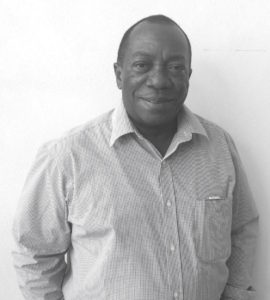
Nelson Mandela African Institute of Science and Technology (NMAIST), Arusha, Tanzania and The Genome Science Centre and Department of Veterinary Microbiology and Parasitology, Faculty of Veterinary Medicine, Sokoine University of Agriculture, Morogoro, Tanzania
Dr. Paul Simon Gwakisa is Professor of Immunology and Animal Biotechnology. He did his Post-doctoral studies at ILRAD (now ILRI), in Nairobi, Kenya (1989-90). He has served on the faculty as well as on the departmental administration (Veterinary Microbiology and Parasitology) at Sokoine University of Agriculture in Morogoro, Tanzania between 1987 and 2011 and later joined the Nelson Mandela African Institution of Science and Technology as founding Dean of the School of Life Sciences and Bioengineering during 2011- Jan 2014. He returned to Sokoine University from February 2014, where he leads research in the Genome Science Centre on vector-borne diseases, molecular biology and health in livestock-wildlife interface ecosystems. His passion is to educate the next generation of African scientists and his vision is to contribute to global health. He also leads the Training Community of Practice under the Southern African Center Infectious Diseases Surveillance (SACIDS), with a vision to improve postgraduate training in One Health sciences. His research competence in immunology, molecular biology and health has permitted elucidation of unique attributes of livestock in terms of disease resistance, vaccine responses and genetic diversity. Due to his passion to educate the next generation of African scientists and vision to improve global health, Paul Gwakisa was appointed as adjunct professor in the Paul G. Allen School of Global Animal Health, Washington State University; the Department of Biology at Penn State University and School of Life Sciences and Bioengineering at the Nelson Mandela African Institute of Science and technology, Tanzania.
Perry Sheffield
Dr. Perry Sheffield is a pediatrician and health researchers. She completed a Pediatric Environmental Health
Fellowship at the Icahn School of Medicine at Mount Sinai after graduating from the Medical College of Georgia and then training in Pediatrics in the Harriet Lane Program of Johns Hopkins University. She is Deputy
Director of the EPA Region II Pediatric Environmental Health Specialty Unit. She conducts qualitative and quantitative research on the health impacts of climate change and public understanding of these issues with a particular focus on children. She has been involved with the development and implementation of South Asia’s first heat-health action plan in Ahmedabad, Gujarat, India.
Peter Daszak
Dr. Peter Daszak, president of EcoHealth Alliance, is a leader in the field of conservation medicine and a respected disease ecologist. EcoHealth Alliance is a global organization dedicated to innovative conservation science linking ecology and the health of humans and wildlife. EcoHealth Alliance’s mission is to provide scientists and educators with support for grassroots conservation efforts in 20 high-biodiversity countries in North America, Asia, Africa, and Latin America.Nine years ago Dr. Daszak became the Executive Director of EcoHealth Alliance’s Consortium for Conservation Medicine (CCM) – a collaborative think-tank of institutions including Johns Hopkins Bloomberg School of Public Health, The University of Pittsburgh Graduate School of Public Health, The University of Wisconsin-Madison Nelson Institute for Environmental Studies, Tufts Cummings School of Veterinary Medicine Center for Conservation Medicine, and the USGS National Wildlife Health Center. The CCM is the first formal inter-institutional partnership to link conservation and disease ecology. Dr. Daszak’s research has been instrumental in revealing and predicting the impacts of emerging diseases on wildlife, livestock, and human populations.
Peter D. McElroy

Program Implementation Unit Lead – PMI Division of Parasitic Diseases and Malaria Center for Global Health – CDC
Dr. Peter D. McElroy is Chief of the Program Implementation Unit in the Malaria Branch, Center for Global Health at the U.S. Centers for Disease Control and Prevention (CDC) in Atlanta. McElroy is team lead for CDC headquarters and field staff assigned to the U.S. President’s Malaria Initiative (PMI). PMI is led by the U.S. Agency for International Development (USAID) and implemented together with CDC in 19 African countries and in the Greater Mekong Subregion. From 2007-2012, McElroy was assigned to PMI in Tanzania where he provided technical assistance to the National Malaria Control Programs (Mainland and Zanzibar). McElroy also worked in the Division of HIV/AIDS Prevention (2004-06) and investigated HIV transmission in a state prison system and collaborated with the National Institutes of Health (NIH) to establish an HIV/AIDS vaccine testing site in western Kenya. He served 6 years in the Division of Tuberculosis Elimination at CDC and led over a dozen TB outbreak investigations with state and local health departments. His career at CDC began as an Epidemic Intelligence Service Officer (1999-2001) in TB. His CDC career has also included emergency deployments for polio, anthrax, Hurricane Katrina, and Ebola. McElroy’s PhD in epidemiology and Masters in Public Health are from the University of Michigan, Ann Arbor. His BS in biology was awarded from SUNY Buffalo.
Pietro Ceccato
Dr. Pietro Ceccato trained originally as an agronomist and soil science scientist. He spent two years in Central African Republic working with local communities to improve agricultural practices. He obtained a master’s degree in environmental management using decision-support systems and worked as a research scientist at the Natural Resources Institute in United Kingdom. He developed remote sensing products to monitor active fires and vegetation status for the purpose of assessing the risk of fire occurrence. He worked at the European Commission Joint Research Centre (Ispra, Italy) on the use of remote sensing to monitor vegetation status and used this work to obtain his PhD in remote sensing from the University of Greenwich, UK. Ceccato then joined the UN Food and Agriculture Organization in Rome to develop an early warning system for desert locust monitoring. He developed remote sensing products and geographic information systems to be used operationally by the Ministries of Agriculture in 21 countries in Africa and Asia. His current research activities include the development and integration of environmental remote sensing products into early warning systems for human health, agriculture, pest management and natural disasters.
Radley Horton
Dr. Radley Horton is an Associate Research Scientist at the Center for Climate Systems Research at Columbia University, affiliated with NASA’s Goddard Institute for Space Studies. Radley was a Convening Lead Author for the Third National Climate Assessment, Northeast Chapter. He is the Lead Principal Investigator for the NOAA-Regional Integrated Sciences and Assessments-funded Consortium for Climate Risk in the Urban Northeast. Radley is also the Columbia University lead for the Department of Interior-funded Northeast Climate Science Center. Radley is also a PI on an NSF funded Climate Change Education Partnership Project. He has also served as Deputy Lead for NASA’s Climate Adaptation Science Investigator Working Group, charged with linking NASA’s science to its institutional stewardship. Radley has also been a Co-leader in the development of a global research agenda in support of the United Nations Environmental Program’s Programme on Vulnerability, Impacts, and Adaptation (PROVIA) initiative. Radley serves on numerous national and international task forces and committees, including the Climate Scenarios Task Force in support of the 2018 National Climate Assessment. Radley frequently appears on national and international television, radio, and in print. Radley teaches in Columbia University’s Sustainable Development department. His research interests include sea level rise, extreme climate events, Arctic sea ice, and adaptation to climate change.
Ruth DeFries
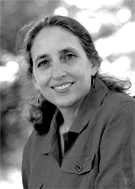
Denning Professor Sustainable Development Professor – Department of Ecology, Evolution, and Environmental Biology
Dr. Ruth DeFries examines human transformation of the landscape and its consequences for climate, biogeochemical cycling, biodiversity, and other ecosystem services that make our planet habitable. The work is based onthe premise that land use change involves tradeoffs between human necessities such as food and unintended environmental consequences such as greenhouse gas emissions and habitat loss. A particular focus is tropical deforestation and its impacts on atmospheric carbon emissions. DeFries examines land use changes over broad scales through the lens of satellite observations. She is actively involved in linking scientific information into policy decisions. Previously, Dr. DeFries was professor in the Geography Department at the University of Maryland, staff at the National Research Council with the Committee on Global Change and taught at the Indian Institute of Technology in Bombay. She was elected to the U.S. National Academy of Sciences in 2006 and the American A ssociation for the Advancement of Science in 2008, is a fellow of the Aldo Leopold Leadership Program, and received a MacArthur Foundation “genius” award in 2007. Dr. DeFries received her Ph.D. in 1980 from the Department of Geography and Environmental Engineering at Johns Hopkins University. She received her B.A. in Earth Science, summa cum laude, in 1976 from Washington University in St. Louis, MO.
S. René Salgado
Dr. S. René Salgado is a medical doctor with graduate work in health promotion. For the last 11 years, Dr. Salgado has been working with USAID’s President’s Malaria Initiative (PMI), first as a resident adviser in Tanzania and in the last eight years as a Senior Malaria Technical Adviser for Monitoring and Evaluation based in USAID-Washington. His present work encompasses assessing the impact of malaria interventions on child mortality. Before his current position, he was the Technical Director for Malaria on the Deliver Project at John Snow Inc., served as the Team Leader for Integrated Management of Childhood Illness (IMCI) at the BASICS II Project, as well as the Director of JSI’s Center for Child Health. In his native México, he was Country Director for an international non-governmental organization working in community-based primary health care. Dr. Salgado has extensive experience in child survival and malaria, has 34 years of experience in international public health, and has lived and consulted in more than 35 countries around the world.
Sarah Molton
Dr. Sarah Molton leads Wellcome’s Our Planet, Our Health Strategic Priorty Area. She has over 14 years’ experience of working with scientists in the academic, private, government and NGO sectors to identify and cultivate collaborative programmes of research. Sarah joined Wellcome in 2010 and since 2013 has led the development of Our Planet, Our Health. This forms part of Wellcome’s evolving strategy in connecting the environment and health. Sarah holds a BSc in Biochemistry from the University of York, UK and a PhD in Biochemistry from the University of Cambridge, UK.
Simon Mason
Dr. Simon Mason is chief climate scientist, taking a lead role in international outreach from the IRI’s Climate Program, and leading the IRI’s disaster work. He was a member of the drafting team for the High-Level Task Force on the Global Framework for Climate Services (GFCS), is an overall author for the GFCS Implementation Plan, and is a focal point for the IRI’s Partnership to Save Lives with the International Federation of Red Cross and Red Crescent Societies (IFRC). He has been heavily involved in capacity building activities, including leading the development and support of the Climate Predictability Tool (CPT). Mason joined the IRI in 1997, working initially at the Scripps Institution of Oceanography, and moving to Columbia University in 2003. Prior to joining the IRI, Mason was deputy director of the Climatology Research Group at the University of the Witwatersrand, in South Africa, where he developed empirical models for predicting southern African rainfall variability. Mason is a Visiting Senior Fellow in the Centre for Analysis of Time Series at the London School of Economics and Political Science.
Susan Rumisha
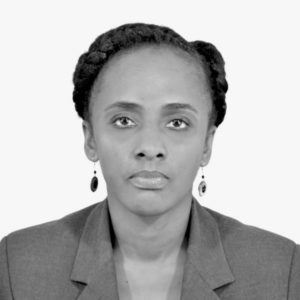
Principal Research Scientist and a Biostatistician National Institute for Medical Research – Tanzania
Dr. Susan F. Rumisha, is a Principal Research Scientist and a Biostatistician working with the National Institute for Medical Research, Tanzania. She holds a BSc (Statistics & Mathematics) from the University of Dar es Salaam, Tanzania, MSc (Biostatistics) from Universiteit Hasselt, Belgium and did her PhD in Bayesian Statistics & Epidemiology focusing in development of spatial temporal models for malaria transmission at the Universität Basel and Swiss Tropical and Public Health Institute, Switzerland. Dr. Rumisha has built her expertise in infectious disease surveillance, strengthening Health Information Systems and translation of research findings into practice. Her vision is to see developing countries with functional health information systems and understanding on the value of statistics in evidence-based decisions. To achieve that she has been providing technical support and expertise to students, stakeholders, programs, department and ministries in designing good research works, data analysis and interpretation, and generating evidence from research. She also trains and lecture on statistics, research methodology and information systems in higher learning institutions. She is an author of a number of publications in health systems, surveillance, health workers and community knowledge, Ecohealth and many more.
Thierry Baldet
Dr. Thierry Baldet holds a PhD from University of Montpellier, France and has over twenty years of experience in research, surveillance and control on vector-borne diseases. Before joining IDRC as a Senior Program Specialist in the Agriculture and Environment Program, Thierry worked with IRD and Cirad, two French scientific institutions dedicated to the development of tropical countries. He carried out research on vector-borne diseases, as well as training and expertise for several organisations. He has lived and worked in many African countries, including Benin where he helped develop and coordinate the first International Master in medical and veterinary Entomology.
Tufa Dinku
Dr. Tufa Dinku has more than twenty years of operational and research experience in the field of climate science and its applications. This includes twelve years of operational meteorology at the National Meteorology Agency of Ethiopia and eight years of research and applications at the IRI. He received a BS in physics from Addis Ababa University, a post- graduate diploma in meteorology from the Indian Institute of Tropical Meteorology, and MS and PhD degrees in civil engineering/hydrometeorology from the University of Connecticut in the United States.
Dr. Dinku’s main focus over the last five years has been improving the availability, access, and use of climate information in Africa. To this end, he has designed and implemented projects at national and regional levels, particularly in Africa.
Waafa El-Sadr
Dr. Wafaa El-Sadr, MD, MPH, founded and currently directs ICAP which works in sub-Saharan Africa, Central Asia, and in the U.S. in partnership with governmental and non-governmental organizations building in-country capacity for HIV prevention, care, and treatment and related issues. ICAP champions a family-focused approach consistent with the one pioneered at Harlem Hospital through a multidisciplinary team of providers and based on building meaningful partnerships with governmental and non-governmental organizations within countries.
Dr. El-Sadr has also led efforts to support the capacity of health systems through the many programs that ICAP has established. Her work has also advanced the concepts of health systems strengthening globally for the purpose of confronting major health threats faced by communities around the world. For two decades, Dr. El-Sadr served as chief of the Division of Infectious Diseases at Harlem Hospital Center in New York City. In this role, she was instrumental in developing a comprehensive HIV/AIDS and tuberculosis program focused on service, training, and research. Dr. El-Sadr has led the design and implementation of numerous studies that have furthered the understanding of the prevention and treatment of HIV/AIDS, tuberculosis, and other infectious diseases. In 2008, Dr. El-Sadr was named a John D. and Catherine T. MacArthur Foundation Fellow and in 2009 she became a member of the Institute of Medicine.

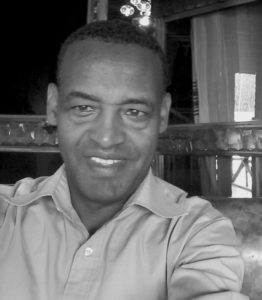

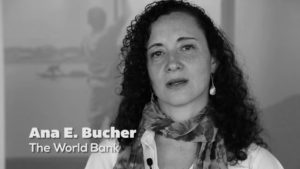
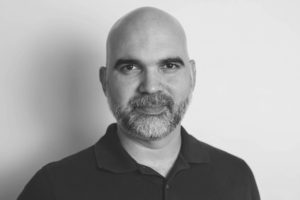
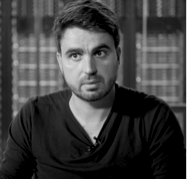

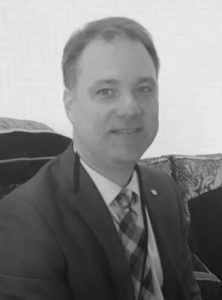
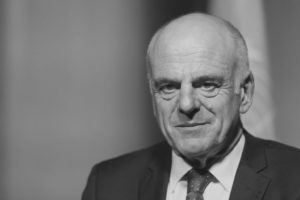

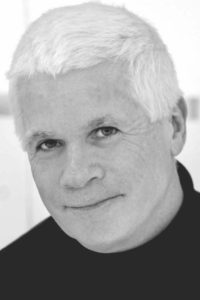

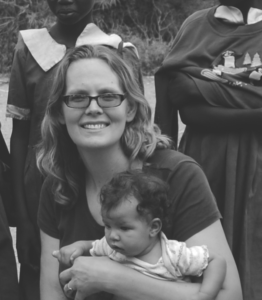
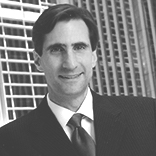
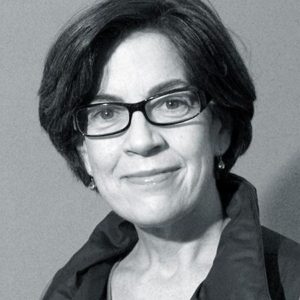
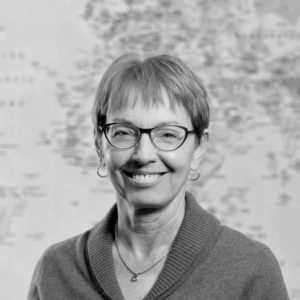

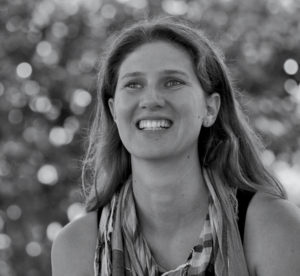

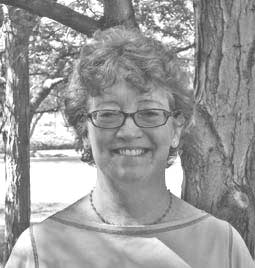
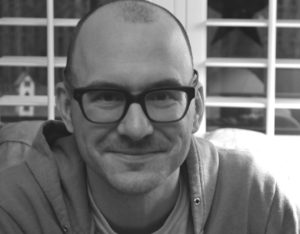
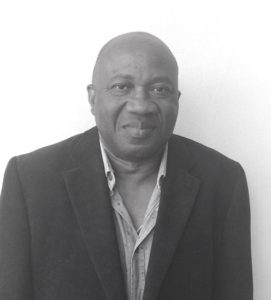
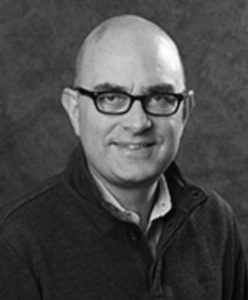

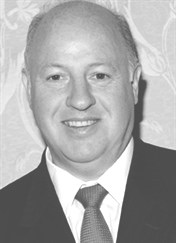
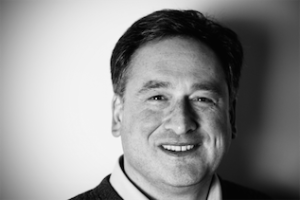
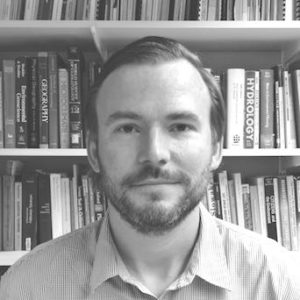
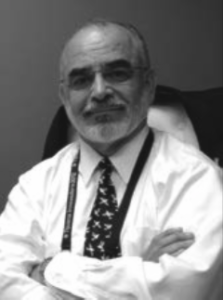


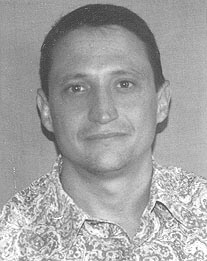
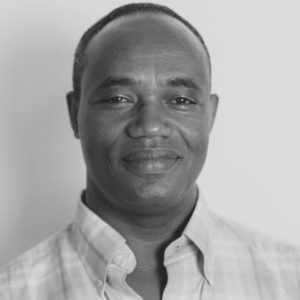

You must be logged in to post a comment.